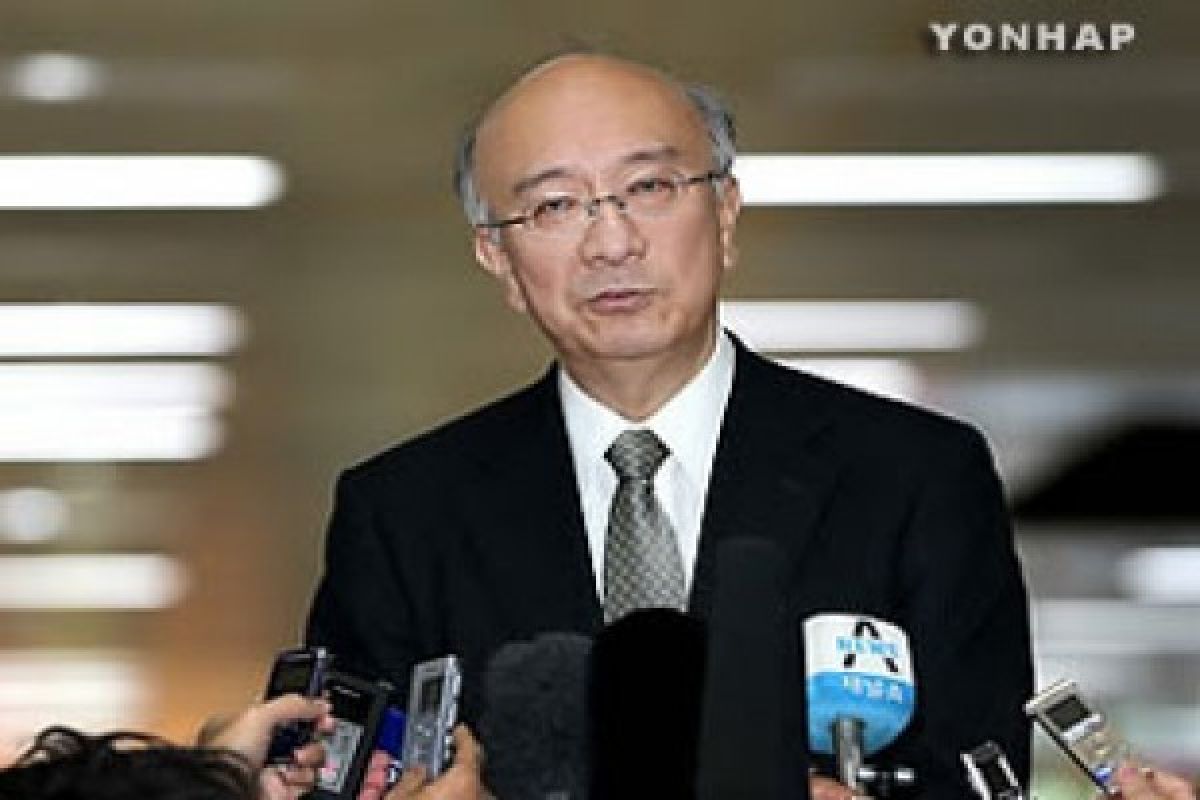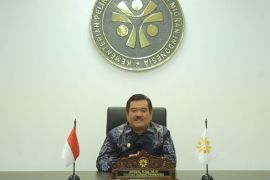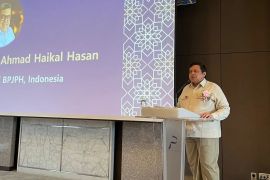"Japan is willing to sign the military intelligence-sharing pact with South Korea at any time."Seoul (ANTARA News/Yonhap) - The Japanese ambassador to Seoul said Wednesday that Tokyo is prepared to sign a military intelligence pact with South Korea "at any time," urging Seoul to boost military partnership in the face of North Korea`s bellicose threats.
South Korea and Japan postponed the signing of the military intelligence-sharing agreement last July -- which would have been the first military pact between the two nations -- due to discontent among Koreans. Memories of Japan`s brutal colonial rule on the Korean Peninsula remain vivid in South Korea.
"Japan is willing to sign the military intelligence-sharing pact with South Korea at any time," Koro Bessho, the Japanese ambassador to South Korea, said during a conference of senior journalists in Seoul, adding that the pact will "mutually benefit both South Korea and Japan."
Bessho called for South Korea to strengthen its bilateral military ties with Tokyo as a means of pressuring North Korea to back off its nuclear ambitions and coping with the North`s increasingly bellicose threats.
The Japanese ambassador also said that Seoul, Tokyo and Washington must boost their trilateral cooperation in Northeast Asia in the face of a rising China as the U.S. is shifting its diplomatic and security focus from Iraq and Afghanistan to Asia.
"North Korea has threatened a preemptive nuclear attack against South Korea and Japan," Bessho said. "Against the backdrop of North Korea`s threats, there is the need to forge a close coordination among Japan, South Korea and the U.S."
"While the South Korea-U.S. alliance and the Japan-U.S. alliance are solid, a defense cooperation between South Korea and Japan is still vulnerable," Bessho said.
"Although it is a sensitive issue, I hope the two nations to forge a close cooperation in the field of defense," the Japanese ambassador said.
The U.S. stations 28,500 troops in South Korea and there are about 50,000 American troops in Japan.
If a war breaks out on the Korean Peninsula, Bessho said that the Japanese military could support logistical missions for U.S. forces.
"In case of emergency, most U.S. military personnel and assets should be en route to Japan to go to the Korean Peninsula," he said. "I think Japan`s Self-Defense Forces and the U.S. 7th Fleet would work together to secure sea routes."
Bessho expressed his "strong hope" that South Korea and Japan must mend ties that were strained by historical disputes and territorial issues, but admitted that there is "no simple solution" to improve the Seoul-Tokyo ties.
Relations have been strained since former South Korean president Lee Myung-bak made a visit to the South`s islets of Dokdo, which are also claimed by Japan.
Dokdo, which lies closer to South Korea in the body of water between the Korean Peninsula and Japan, has long been an issue of contention between the two countries. South Korea keeps a small police detachment on the islets, effectively controlling them.
Tensions on the Korean Peninsula have been running high since North Korea conducted its third nuclear test in February. Angered by the latest U.S. sanctions against the North`s third nuclear test, Pyongyang has threatened a war against Seoul and Washington.
Seoul`s military officials said North Korea may go ahead with a potential missile launch but there are no signs that the communist country is preparing a full-scale war on the Korean Peninsula.
Officials have reported spotting a couple of mid-range missiles mounted on mobile launchers hidden in a shelter on the North`s east coast. The North`s Musudan missile, with an estimated range of up to 4,000 kilometers, can cover South Korea and Japan and reach as far as the U.S. territory of Guam.
But the North passed the Monday anniversary of the birth of its late founder Kim Il-sung without making any new military provocations, including a missile launch.
(T.A045/H-AK)
Editor: Priyambodo RH
Copyright © ANTARA 2013










